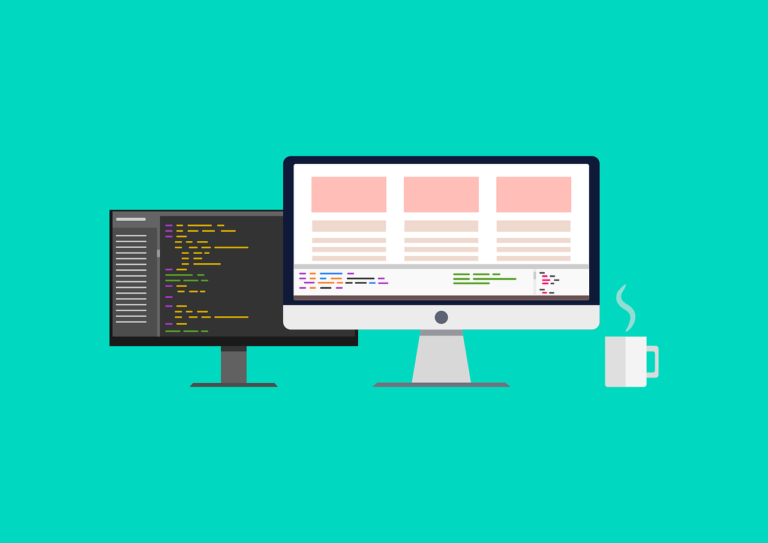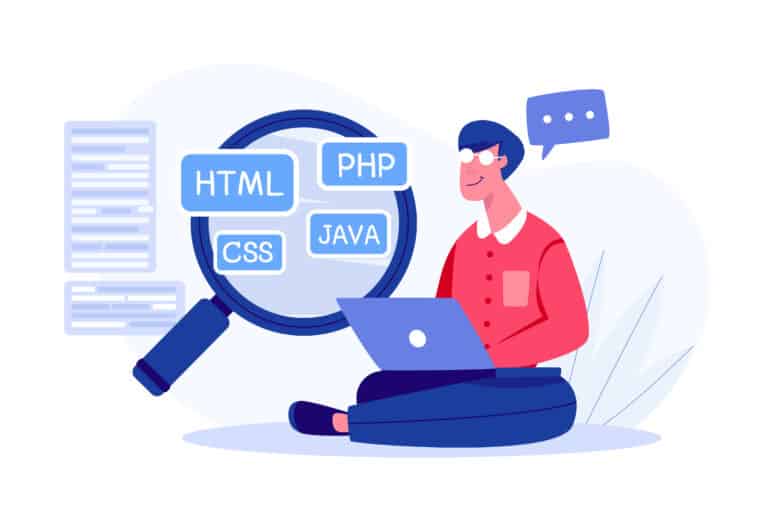Table of Contents
Introduction
Programming languages are essential tools for modern-day developers and are used in various fields, including web development, game creation, machine learning, and desktop app development, just to name a few. Choosing your first programming language can seem overwhelming, but following the right set of criteria can make the process less daunting. In this article, we will explore all the factors to consider when choosing a programming language.
Why Learning a Programming Language is Important
Learning a programming language opens up numerous career opportunities in tech. It allows you to solve problems digitally, automate tasks, and build new software. Moreover, coding skills are in high demand in the job market, with many employers seeking developers of all levels of experience.
Factors to Consider When Choosing a Programming Language
Understanding Programming Languages
What is a Programming Language?
A programming language is an artificial language that developers use to instruct computers to perform specific tasks. It is used to create software, applications, and systems that we use on a daily basis.
Types of Programming Languages
There are two main types of programming languages, namely high-level and low-level programming languages. High-level programming languages are more user-friendly and easier to read, while low-level programming languages are more complicated and can interact more directly with the computer’s hardware.
Considering Your Goals and Objectives
Deciding What You Want to Achieve Through Programming
Before choosing a programming language, it is crucial to understand the purpose you want to achieve. Are you creating a web application or developing a desktop application? Understanding your goals and objectives will assist you in picking the right programming language for your project.
Different Programming Languages for Different Purposes
Each programming language is designed to solve specific problems. Python, for instance, is widely used in data science applications, while JavaScript is commonly used in web development.
Language Familiarity and Difficulty
How Familiar Are You with Basic Programming Concepts?
If you are new to programming, you may want to start with an easier language such as Python. However, if you have some prior experience, you may want to try out a more complex language such as Java or C++.
Difficulty Levels of Programming Languages
Programming languages have varying levels of complexity. Some are easier to learn than others, while some require expertise in specific areas such as data structures and algorithms.
Job Market and Career Prospects
Demand for Programmers in Different Programming Languages
The demand for developers also varies depending on the programming language. C++, Java, and Python are in high demand in the job market and offer high-paying positions.
How to Choose a Language with Better Career Prospects
It is crucial to research the programming languages that are in demand in the industry to increase your chances of landing a job. Moreover, consider what potential employers are looking for in a candidate, such as prior experience or expertise in specific languages.
Learning Resources
Importance of Having Access to Learning Resources
Having access to quality learning resources, such as tutorials and textbooks, is crucial when learning a new programming language. Moreover, having access to a supportive community of developers can help you learn and develop your skills faster.
Availability of Resources for Different Programming Languages
Some programming languages, such as Java and Python, have a vast library of resources available online. On the other hand, some less popular languages may have fewer resources available.
Syntax and Readability
Importance of a Language’s Syntax and Readability
Readable code is essential when working with a team of developers or maintaining an older system. Choosing a language with easy-to-read syntax can help you create cleaner and more maintainable code.
Readability Factors to Consider When Choosing a Language
Some languages, such as Python, prioritize readability over performance. Other languages, such as C, may have cryptic syntax but can run more efficiently.
Project Complexity and Scope
Complexity Levels of Different Programming Languages
Choosing the right programming language for your project’s complexity is crucial. Some languages, such as Python, are better suited for small to medium-sized projects, while others such as C++ are better suited for larger projects.
Matching a Language’s Complexity with Your Project’s Scope
Understanding the scope of your project can help you choose a programming language that can handle its complexity.
Community Support
Availability of Programming Communities and Discussion Forums
Being part of a community of developers can be valuable when learning and troubleshooting problems with your code. Communities such as Stack Overflow or Reddit can provide a forum for developers to share solutions and answer questions.
Benefits of Being Part of a Programming Community
Joining a programming community can help you connect with other developers, learn new skills, and improve your problem-solving abilities.
Ecosystem and Integration
Integration of Programming Languages with Other Tools and Technology
Some programming languages work better with specific tools and technology stacks. Ruby on Rails, for instance, is a popular web development framework used with the Ruby language.
Importance of Considering a Language’s Ecosystem Before Learning
Understanding the tools and technology used with specific programming languages can help you make an informed decision when choosing which language to learn.
Language Support
Supporting Libraries for Different Programming Languages
Programming languages often have libraries and frameworks that make coding more natural and more efficient. Understanding the availability of libraries for a specific language can help you take advantage of more powerful tools to develop your project.
The Importance of Library Support for Efficient Programming
Library support can help you write more efficient code, use fewer lines of code, and reduce the time spent developing a project.
Language Performance
Comparison of Different Programming Languages Based on Performance
Performance is crucial in some applications, such as games or data-intensive tasks. Choosing a programming language with better performance can help you create faster and more efficient applications.
Factors to Consider When Choosing a Language Based on Performance
Factors such as the language’s ability to run multi-threaded code or manage its memory usage can significantly impact performance.
Choosing a Programming Language for Web Development
Popular Languages for Web Development
Web development is a popular field that entails creating dynamic and responsive web applications. Popular programming languages in web development include JavaScript, HTML, and CSS.
Features to Consider When Choosing a Language for Web Development
Understanding the frameworks, servers, and libraries used in web development can help you choose the right language for your project.
Choosing a Programming Language for Data Science
Popular Languages for Data Science
Data science is a field that entails analyzing diverse datasets to gain insights and develop predictive models. Familiar languages used in data science include R and Python.
Features to Consider When Choosing a Language for Data Science
Data science libraries such as NumPy, Pandas, and SciPy are essential when working with data using Python. These libraries provide a wide range of functions and tools that make analyzing data more manageable.
Choosing a Programming Language for Machine Learning
Popular Languages for Machine Learning
Machine learning is a field that entails training artificial intelligence systems to learn from data and make predictions. Popular programming languages in machine learning include Python, R, and C++.
Features to Consider When Choosing a Language for Machine Learning
Machine learning libraries such as TensorFlow, Keras, and Scikit-learn can make the process of developing machine learning algorithms more straightforward and more efficient.
Choosing a Programming Language for Game Development
Popular Languages for Game Development
Game development involves creating video games and interactive content. Popular programming languages in game development include C++ and C#.
Features to Consider When Choosing a Language for Game Development
Game development frameworks such as Unity can make the process of creating games more accessible and more efficient.
Choosing a Programming Language for Mobile App Development
Popular Languages for Mobile App Development
Mobile app development involves creating applications for smartphones and tablets. Popular programming languages in mobile app development include Java, Kotlin, and Swift.
Features to Consider When Choosing a Language for Mobile App Development
Understanding the tools and frameworks used in mobile app development, such as React Native or Xamarin, can help you choose the right language for your project.
Choosing a Programming Language for Desktop App Development
Popular Languages for Desktop App Development
Desktop app development involves creating software that can be run on personal computers. Popular programming languages in desktop app development include C# and Java.
Features to Consider When Choosing a Language for Desktop App Development
Understanding the tools and frameworks used in desktop app development, such as Qt or WPF, can assist you in picking the right language for your project.
Future of Programming Languages
Upcoming Trends in Programming Languages
Programming languages are always evolving, with new features and syntax being developed regularly. Keeping up with new trends and updates can be beneficial when choosing which language to learn.
Choosing a Future-proof Language for Learning
It is crucial to choose a language with a thriving community and a broad range of applications to ensure its longevity and relevance in the industry.
Conclusion
Choosing the right programming language can be daunting, but by considering all of the above factors, you can make an informed decision for your specific project and goals.
Stay curious, seek out resources, and practice consistently, and you’re well on your way to becoming a proficient developer.
FAQs
Frequently Asked Questions about Choosing a Programming Language
What programming language should I learn first?
The best programming language for you depends on your experience level, goals, and preferred project. However, popular languages for first-time learners include Python, JavaScript, and Ruby.
How long does it take to learn a programming language?
Learning a programming language takes time, with some languages requiring more time than others. However, with consistent practice and dedication, you can learn a new programming language in a matter of weeks or months.
Should I choose a language with better performance or better readability?
The answer to this question depends on your project’s requirements. However, readability and maintainability are crucial factors to consider when working with a team of developers and working on long-term projects.
What factors should I consider when choosing a programming language?
When choosing a programming language, consider factors such as your project requirements, the language’s popularity and community support, its learning curve, available libraries and frameworks, performance requirements, and the job market for that language
What are some popular programming languages?
Python, JavaScript, Java, C++, C#, Ruby, Go, and Swift. These languages are widely used and have large communities, which means there is plenty of documentation, resources, and support available.
How do I decide which programming language is best for my project?
To decide the best programming language for your project, evaluate your project’s requirements. Consider the type of application you’re building, the target platforms, performance needs, available libraries and frameworks, and the skills of your development team. Also, consider the long-term viability and scalability of the language.
Should I choose a language I’m already familiar with or learn a new one?
If you already have experience with a programming language that suits your project’s requirements, it can be beneficial to leverage your existing knowledge. However, learning a new language can expand your skill set and open up new possibilities. Assess the trade-offs and the resources available for learning a new language before making a decision.
How important is the size of the language’s community?
The size of a language’s community can significantly impact your development experience. A large community means there are more resources, libraries, frameworks, and support available. It also indicates the language’s popularity and longevity, which can affect job opportunities and the availability of experienced developers.
Are there programming languages better suited for specific domains?
Yes, some programming languages are better suited for specific domains. For example, R and Python are commonly used in data science and machine learning, JavaScript is popular for web development, and C++ is often used in game development and systems programming. Consider the requirements of your domain when choosing a language.
Can I use multiple programming languages in a single project?
Yes, it’s possible to use multiple programming languages in a project. This is commonly seen in web development, where different languages handle different aspects (e.g., HTML, CSS, JavaScript, and backend languages like Python or Ruby). However, using multiple languages can increase complexity, so consider the trade-offs and the integration challenges involved.
How can I determine a language’s performance for my project?
Language performance depends on various factors, including the specific task, algorithms used, and the language’s implementation. Generally, lower-level languages like C or C++ offer greater performance but require more development time. However, higher-level languages like Python or JavaScript provide better developer productivity. Benchmarking and profiling tools can help evaluate performance for your specific use case.






